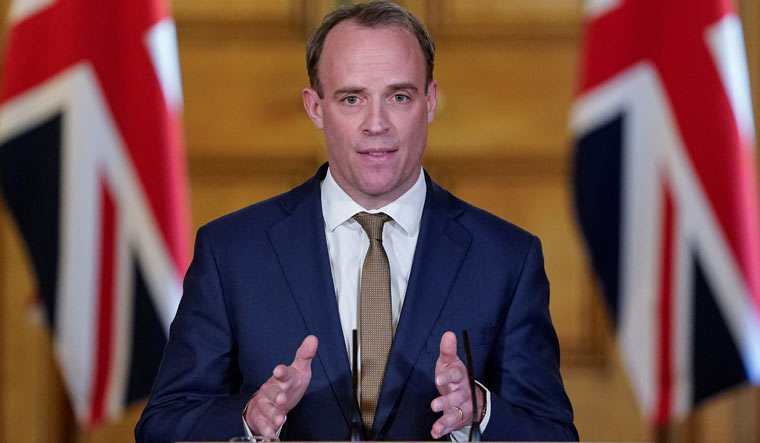UK Foreign Secretary Dominic Raab has said that the UK government will suspend its extradition treaty with Hong Kong “immediately and indefinitely”.
He also said that the UK “wants a positive relationship” with China.
Raab said the “imposition” of the new security law in Hong Kong by Beijing was a “serious violation” of the country's international obligations.
After the security law was passed, UK Prime Minister Boris Johnson had offered UK citizenship to Hong Kong residents on July 1.
Besides suspending the extradition treaty, Raab said the government would also extend its arms embargo on China to include Hong Kong, that would stop the UK from exporting firearms, smoke grenades and shackles to the region.
Raab, while making these announcements, expressed his concern over the lack of legal and judicial safeguards for citizens living under the new national security legislation. Raab also said that "the United Kingdom is watching. And the whole world is watching”.
Despite several protests and cautionary statements from Western nations, Beijing went ahead and passed the restrictive security law that threatens the semi-autonomous state of Hong Kong, a prominent financial hub and has endangered personal freedom enjoyed by its citizens.
Critics have said passage of the law could see pro-democracy protesters in the region being served with life sentences.
They have also said the law undermines the agreement made with the UK before Hong Kong—a former British colony—was handed over to China in 1997, which led to the establishment of Hong Kong’s Basic Law, that came to be known as “one country, two systems”.
Political and economic relations between the UK and China have become strained in recent months after the UK government decided to ban Huawei, a Chinese tech company from UK’s 5G network.
Raab, while addressing MPs in the parliament, also raised his “grave concerns” about the “gross human rights abuses” taking place in China's Xinjiang region against Uighur Muslims. Reports of forced sterilisation and wider persecution have emerged from the region.


